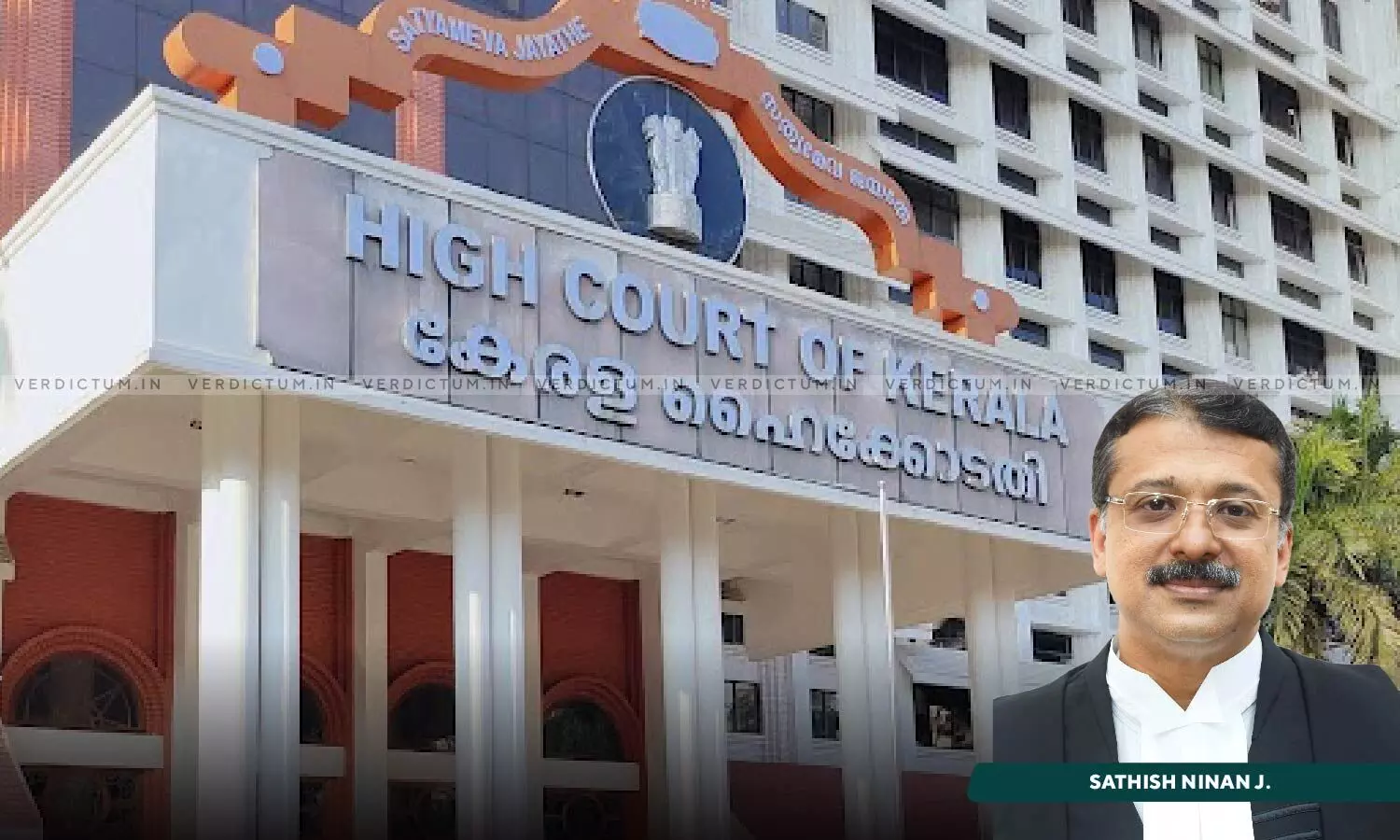
When Nomination Of Ex-Officio Members Is From Senate, Such Nomination Cannot Be Withdrawn In Exercise Of Doctrine Of Pleasure- Kerala HC
 |
|The Kerala High Court has held when nominated members of the Senate are ex-officio members then their nomination cannot be withdrawn in the exercise of the 'Doctrine Of Pleasure'.
The High Court also quashed the Chancellor’s order to withdraw the nominations of the members from the Senate of Kerala University as the order was not based on any reason but was rather founded on prejudice and was arbitrary.
The Bench of Justice Sathish Ninan observed that “...it is evident that the order is not based on any reason, but, was rather founded on prejudice. It was an unreasoned act, without regard to the facts and circumstances. All the above points to arbitrariness. It appears that the Chancellor was under a misconception regarding the role of nominee, which also contributed to the arbitrary action. Therefore, on the facts as noticed above, this Court finds that, the order withdrawing the nominated members suffers from the vice of arbitrariness. The orders withdrawing the nominated members are thus liable to be interfered with.”
Senior Advocate P. Ravindran and Advocate N. Raghuraj appeared for the petitioners and Senior Advocate S. Gopakumaran Nair appeared for the respondent.
In this case, the petition was preferred by 15 nominated members whose nomination was withdrawn by the Chancellor. They had challenged the withdrawal of their nominations as well as the notification via which the Search-cum-Selection Committee was constituted, and its convenor was appointed.
According to Section 10 of the Kerala University Act, 1974 (Act) the Search -cum-Selection Committee should consist of one member elected by the Senate, one member nominated by the Chairman of the University Grants Commission, and the third member nominated by the Chancellor, and the Chancellor had to appoint one among the members of the Committee as its Convenor.
The Search-cum-Selection Committee was to be constituted for the selection of a new Vice-Chancellor for the University as the tenure of the one in office was to end. The Chancellor made repeated requests and gave directions to the Senate to nominate a member to constitute the three-member selection committee. But nothing was done. Thereafter, the Chancellor withdrew the nominations of the Senate members due to lack of cooperation.
The Counsel for the petitioners contended that the committee and its Convenor could not have been constituted when the panel’s third member was not decided by the Senate of the University.
The Court noted that some of the Senate members were ‘ex-officio members’ and their nomination was withdrawn by the Chancellor in the exercise of the ‘doctrine of pleasure’ provided under the 4th proviso to Section 18(3) of the Act.
The Court, while considering whether the exercise of the “pleasure doctrine” in withdrawing the nominated members, was arbitrary, capricious, or malafide, said that it would be relevant to first understand the nature/ capacity of the ‘nomination’ and a ‘nominee’ under Section 17 of the Act.
The Court said that If it was found that the process of “nomination” was mere creation of an agency and, a “nominee” was a mere agent or a mouthpiece of the nominator, then there was an absolute privilege in invoking the pleasure doctrine, and the vices, “arbitrary, capricious and mala fide” would hardly have applied and observed that “...the nominee under Section 17 of the Act is not a mere mouthpiece or an agent. His actions need be in accordance with law. He has to act according to law. The order of withdrawal of the nominated members is not for any alleged illegal act.”
Further, while interpreting the 4th proviso, the Court said that the 4th proviso was unambiguous and the application of the 4th proviso was confined to the nominees falling under the head “Other Members” and the petitioners herein were nominees under the head “Ex-Officio Members”.
Therefore, “When statute provides for a specific term of office and does not provide for withdrawal therefrom at pleasure, the doctrine of pleasure does not operate. Therefore, their nominations could not have been withdrawn in exercise of the doctrine of pleasure under the 4th proviso to Section 18(3)." the Court further observed.
Accordingly, the writ petitions were allowed, and the order of the Chancellor was quashed and the notification withdrawing the nominations of the petitioners from the Senate of the University, and the notification constituting Search-cum-Selection Committee and Convener of the Committee were thereby quashed.
Cause Title- S. Joy v. The Chancellor